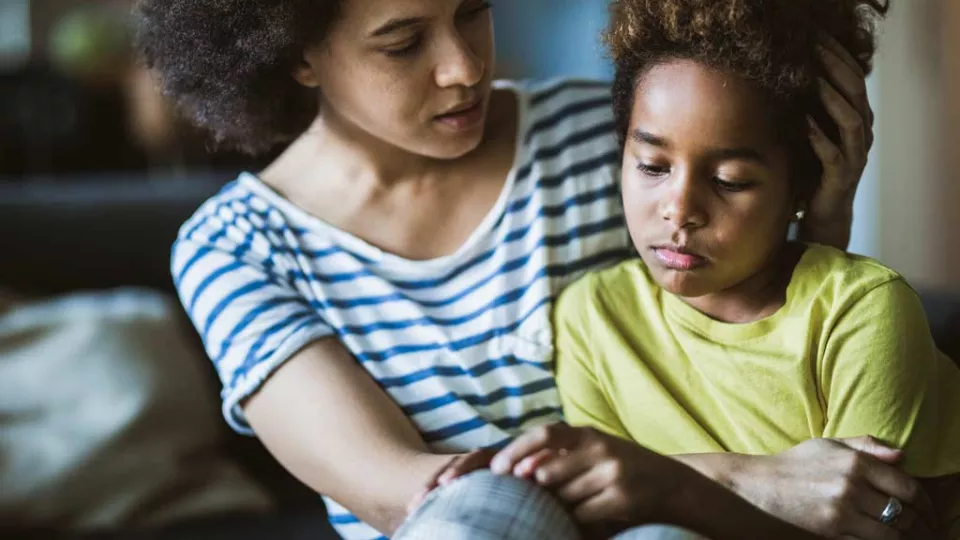
Talking With Children About Violence in the News
Help children understand and cope with upsetting news.
Children and teenagers are better able to cope with upsetting news when they feel they understand what has happened and know what to do to keep themselves and those they care about safe. They need information just as adults do. Begin by asking what they already know about the event. They have likely heard about it on TV, on the internet or social media, at school, or from their friends. However, much of their information may not be accurate. As they explain what they know, listen for misunderstandings or worries.
Children and youth of different ages understand and react differently according to their developmental age and personal experience. It is important to remember that children's worries are often different than those of adults. For example, a young child may hear about violence in a government building and worry about the safety of a parent who works in the post office. When we listen to children and come to understand their feelings and worries, we can better help them make sense of these experiences and how they affect us all.
How much information should I share?
The amount of detail that children will find useful will depend in part on their age, their coping style, and their personality. In general, older children want, and benefit, from more information to answer their questions and address their concerns. They may wish to discuss the larger implications of the event. But for children of any age, start with basic information. Use simple and direct terms and then ask for questions. Take your cues from the children in determining how much information to provide.
Be honest and do not attempt to dismiss their concerns. Provide reassurance when possible and try to provide a hopeful perspective overall. Our government, police and schools are taking steps to protect us from something like this happening again and to keep us safe. Civil unrest and other community violence remind us all that we are never completely safe—but now is the best time to reassure children that they can and should feel safe in their school, in their home, and in their community.
Limit media exposure.
While it is useful for children to know enough about what has happened to feel that they understand what has occurred and what they should do, it is not helpful for children (or adults) to be exposed to graphic images or information, or continuous or repetitive media coverage. Such images and details are often included in coverage of the event on television, radio and print media, as well as in social media and elsewhere on the internet. Limit children’s exposure to media coverage and discussion on social media. In the immediate aftermath of a crisis event, it is a good time to turn off televisions, computers and smart phones and come together as a family for discussion and support.
Whose fault is it?
In some ways, blaming is a way to feel as if you can regain control of uncomfortable feelings and a sense of personal risk. While it is natural to engage in thoughts of blame, this does not ease the immediate feelings of grief and fear. It is understandable to be upset at individuals who commit acts of violence and hatred, but people may also be angry at others who are easy to blame—such as people who seem to share political or personal beliefs or who appear to have a similar background. Children should be told that although it is normal to feel angry, we should not assume that others who were not known to be responsible are also at fault.
How can I tell if children need more than I can provide? Where would I go for help?
When there is civil unrest or other community violence, it is normal to be upset. However, if children continue to be very upset for several days and are unable to recover from their fears, or if they are having trouble in school, at home or with their friends, then it is a good idea to speak with someone outside the family for advice. The event may have triggered other distressing experiences, worries or concerns they have. You may wish to speak with a teacher or school counseling services, pediatrician, or mental health counselor for advice.
What if I have more questions? Where can I turn for answers?
For more resources, visit the National Center for School Crisis and Bereavement. For information on how to support children who are grieving, visit the Coalition to Support Grieving Students at www.grievingstudents.org.


